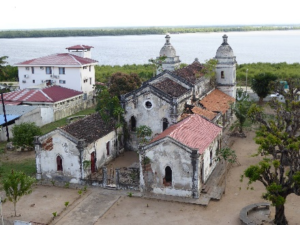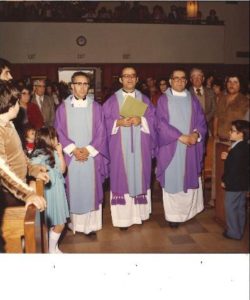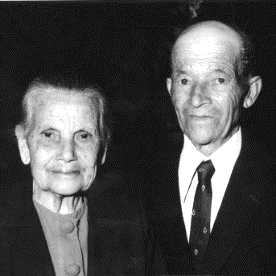1.
When Jesus told the story of a Samaritan helping a Jew everyone was shocked. A Samaritan outcast helping a Jew? Impossible! «Good Samaritan» would have sounded like a bad joke – a contradiction in terms. The parable was an invitation for Jews to love Samaritans and Samaritans to love Jews. It’s an invitation of all times to love their enemies.
– to love those they have previously hated.
In this story told by Jesus we don’t see the word «good». I believe that this was an embarrassing story to be told. It reminds me of a person who was telling me that she had a black family as her neighbour but they were «good». When somebody tells me that «my boss is Portuguese but he is a good person»
I understand the message. I believe that when the people heard this story of a Samaritan helping a Jew they started looking at one another and sharing some comments, like «did you hear what he said?». And the answer was: «Yes, but this Samaritan was good». And through the centuries this amazing and beautiful story has been told millions of times but it was not about a «normal» Samaritan. It was about a «Good Samaritan».
You may try to think about the worst derogatory name you can call any person in the time of Jesus. You will not be able to find a more derogatory name than calling him/her a Samaritan. Oh… but this Samaritan was «good». For Jesus he was just a normal Samaritan. But for them he was the symbol of the lowest person who existed. He was an enemy helping an enemy. That would be unthinkable.
However, this Jewish man travelling from Jerusalem to Jericho fell into the hands of brigands; they took all he had, beat him and then made off, leaving him half dead. Now a Priest and a Levite happened to be travelling the same road. They saw him,they passed by on the other side. But a Samaritan traveler who came upon him was moved with compassion when he saw him. He went up and bandaged his wounds…He then lifted him on his mount, carried him to the inn and looked after him.
He did everything he could to alleviate his suffering and heal his wounds. When Jesus asked the Pharisees which one of the three had been his neighbour, they answered:
«The man who took care of him?» Then Jesus says: «Go and do the same yourself». (Lk. 10: 25-37).
2.
MY SISTER AND TWO SAMARITAN WOMEN
When I was growing up there were no cars in my place of birth. Everybody had to walk to move from one place to another place. It was Sunday morning. My older sister, Conceição, was walking side by side with other good people who were going to attend their Sunday Mass. Of course, nobody wanted to miss Mass. It was Sunday.
Something happened on the way there. My sister fell and broke her foot. Many people passed by her but they could not miss Mass. She stayed there agonizing in pain. As good Catholics, everybody felt sorry for her but they could not miss Mass.
Fortunately, my younger sister, Eulalia, was already in church when this happened. Somebody approached her and said: “Your sister fell, she is alone and cannot walk. It seems that she has a broken foot”. My younger sister flew there immediately and then, later she told me: «When I arrived there, these two women were taking care of her». She told me their names. These two women were the most despised people of the community. They had a very bad moral reputation. Nobody wanted to associate with them. People were not even supposed to greet them or look at them. Listening to this story I feel like asking the same question Jesus asked:
«Which of these people do you think proved him/herself a neighbour to my sister Conceição who fell and broke her foot»?
And then conclude:
«Go, and do the
same yourself». (Luke 10: 25-37)
Love and Peace
Fr. Bernardino Andrade


